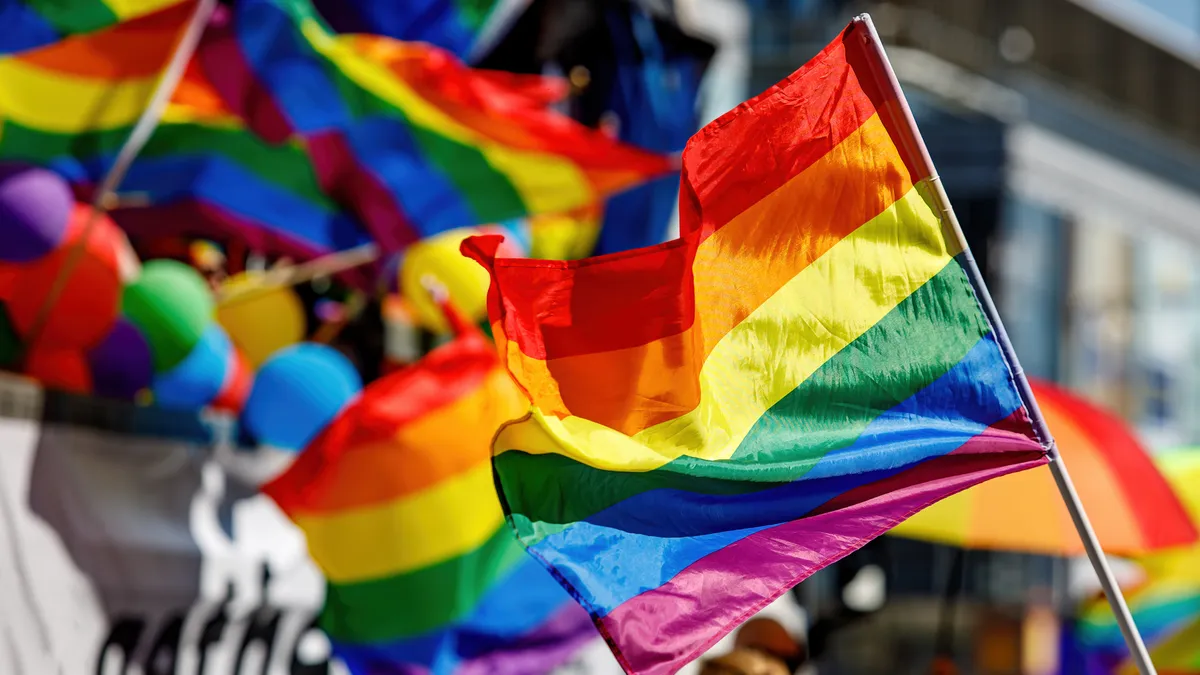The perception of allyship at work appears to be growing, with 60% of LGBTQ+ workers reporting robust support from colleagues and 54% saying they’re open about their identity at work, according to a June 18 report from Randstad.
At the same time, 51% of LGBTQ+ workers reported discrimination or prejudice due to their identity, which led 41% to leave jobs where they felt unwelcome.
“The journey towards genuine inclusivity is ongoing. It’s heartening to see the positive strides made so far, but this report clearly outlines the roadmap for how much further we have to go,” Floss Aggrey, chief diversity and inclusion officer at Randstad North America, said in a statement.
In a survey of LGBTQ+ employees in the U.S., about half said they prefer remote work to avoid noninclusive environments. About half also said they believe their identity has affected their pay or career progression negatively, and 41% have avoided applying for jobs due to discrimination fears.
Corporate Pride initiatives can help bolster allyship, as long as they’re authentic. About half of survey respondents said they commend their employer’s engagement with Pride, but the other half said they find their employer’s efforts inauthentic.
Instead, LGBTQ+ workers reported a need for genuine allyship and action, with 69% saying they see an essential role for employers in ensuring workplace inclusivity. Workers voiced support of employers taking a public stance on issues, creating inclusive job ads and implementing comprehensive diversity training.
In addition, Randstad suggested several actions, such as updating nondiscrimination policies to explicitly protect LGBTQ+ rights, expanding benefits to meet the needs of LGBTQ+ employees, soliciting and acting on direct feedback from LGBTQ+ employees and promoting allyship across the organization as part of inclusive company culture.
For instance, LGBTQ+ workers in the U.S. tend to face a substantial pay gap, earning about 16% less than non-LGBTQ+ workers, which is similar to the pay gap between women and men, according to Glassdoor data. Transgender workers have an even broader pay gap, earning 23% less than non-LGBTQ+ workers.
A lack of LGBTQ+ support often turns talent away, according to an Indeed survey. About a third of LGBTQ+ workers and half of trans workers have refused to apply to a job due to a perceived lack of support. A third also said they’re reluctant to apply for work in states that lack legal protections for LGBTQ+ workers.
Certain shifts could support transgender inclusivity in the workplace, according to a poll by Monster. Workers pointed to more inclusive healthcare coverage, more training for cisgender employees and more employee resource groups for trans and LGBTQ+ workers.












